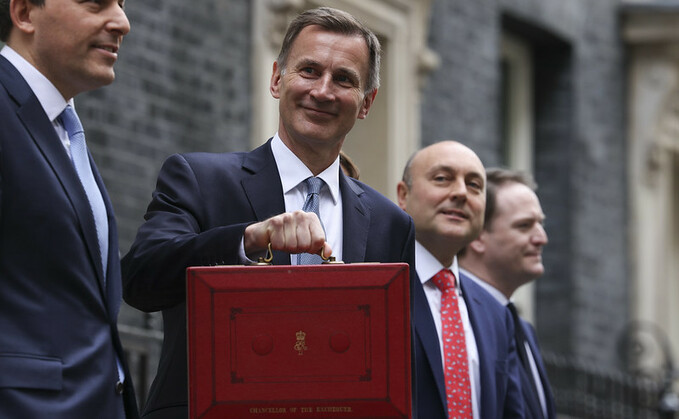
Chancellor Jeremy Hunt prepares to deliver his Budget. Picture by Rory Arnold / No 10 Downing Street
Chancellor Jeremy Hunt has scrapped the lifetime allowance (LTA) and increased the annual allowance (AA) as part of the 2023 Spring Budget.
The chancellor said today the LTA would be abolished and the AA would rise from £40,000 to £60,000.
The move comes in a bid to tackle fears that the current allowances were compelling many professionals, particularly doctors, to retire in their fifties, an issue it said has become more acute since the government announced a six-year freeze on the annual and lifetime allowances in 2020.
The LTA was originally set at £1.5m when it was introduced on A-Day in 2006. It gradually rose to £1.8m in 2010 but fell to just £1m in 2016. Upratings since then have seen the LTA grow to £1.1m.
Spring Budget 23: Hunt unveils measures to tackle UK's labour shortage in bid to boost growth
The AA was originally set at £215,000 in 2006, rising to £255,000 in the 2010/11 tax year before being cut back. The MPAA was introduced in April 2015 at £10,000 before being cut to £4,000 from the 2017/18 tax year.
Pension issues facing higher earners
Pensions annual allowance statistics from HMRC show the extent of the issues that have been facing higher-earning professionals such as doctors.
Its data showed that over 66,000 individuals reported pension contributions exceeding their annual allowance in the 2019/20 tax year - up from just 4,440 in 2012/13.
HMRC said the total value of allowance charges reported by the scheme through the accounting for tax returns scheme was £253m in the 2019/20 tax year compared to just £14m in 2012/13. It said the pension contributions exceeding the annual allowance reported through self-assessment rose from £95m in the 2012/13 tax year to £1bn in 2019/20.















